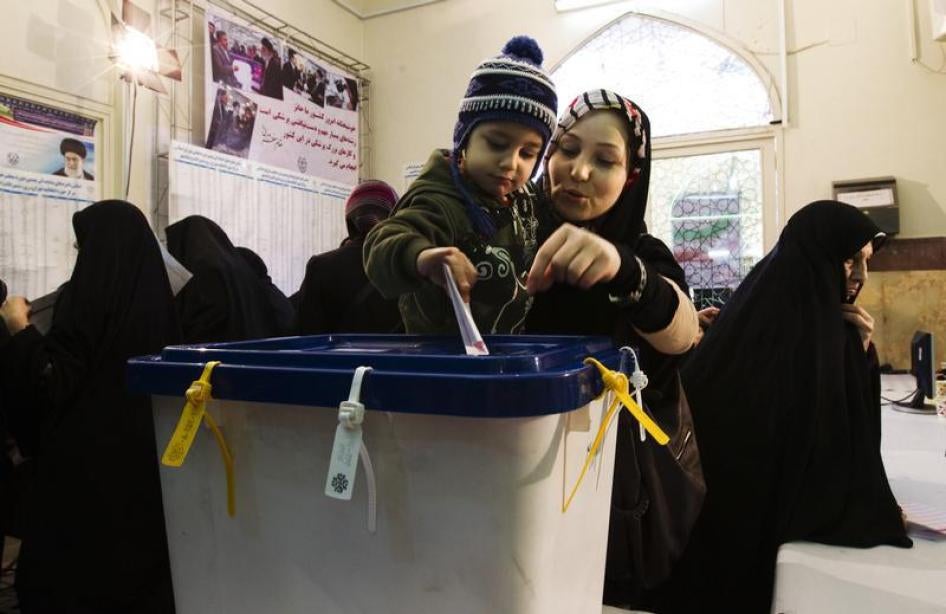Iran’s presidential elections, as well as those for town and village councils, are scheduled for May 19. Yet even before registration opens for candidates, a string of journalists have been arrested. If they have been arrested simply for speaking out peacefully, it would violate the right of free expression and possibly threaten the fairness of the elections.
This week, intelligence authorities ramped up detentions of peaceful critics, arresting journalists Hengameh Shahidi, Ehsan Mazandarani, and Morad Saghafi. Authorities told Mazandarani, who had been released from prison just a month earlier after serving his sentence for vaguely defined national security charges, that his release had been “a mistake.”
More concerning, though, appears to be the arrest of administrators who manage popular news channels within Telegram, a messaging application widely used in Iran. These administrators all ran channels linked to reformist groups, and some maintain channels with hundreds of thousands of followers.
On March 15, Ali Motahari, a member of parliament from Tehran, told ISNA News agency that he had been informed about the arrests of some 12 Telegram channel administrators by a “military intelligence organization.” Motahari emphasized that he had asked the Minister of Intelligence to provide information about which agency arrested them.
Mahmoud Sadeghi, another Tehran parliamentarian, tweeted on March 16 that he had been unsuccessful in finding information on who made the arrests. Sadeghi also shared a screenshot of a complaint he received from a constituent. She described how her husband was arrested by authorities who at first claimed to be representatives of the prosecutors’ office, but then showed an ID card from Iran Revolutionary Guard Corps – a branch of Iran’s military with broad power. Sadeghi called on President Hassan Rouhani and the judiciary’s head to not be bystanders when citizens’ rights are violated.
With widespread censorship and long-standing legal restrictions on free expression in Iran, Telegram has become a vital tool for activism and communication in Iran in recent years. For instance, in February 2016 parliamentary elections, Telegram served as a “must-have” application for politicians to engage with voters.
Arresting citizens for peacefully expressing their views is normally a violation of human rights, but in times like this, it can infringe not on only this fundamental freedom, but also genuine participation in the political process.









